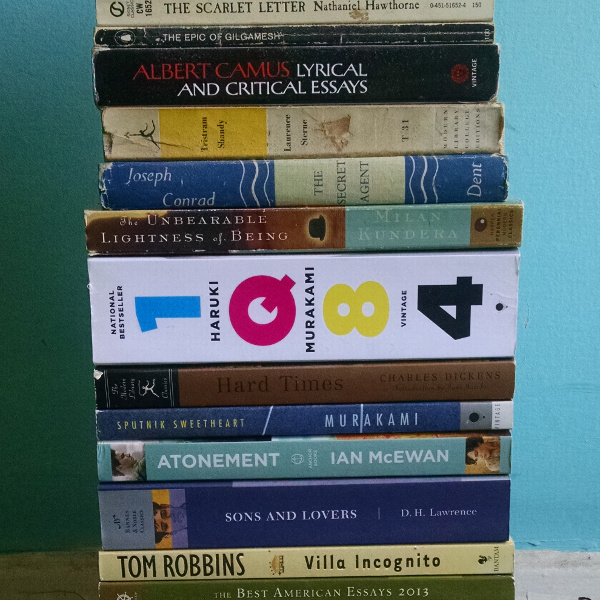Dick pics. Waiting exactly two hours before responding to a flirty text. Swiping through Tinder while at an actual bar because the people there aren’t quite good enough. Aziz Ansari reveals string after string of sharp, relatable truths about 21st century phone-based dating and how today’s young adults struggle through a new period of emerging adulthood in their quests for the perfect soulmate. The book smartly blends sociological research, jokes about rappers, insights into the dating scenes in Japan and Buenos Aires, and actual, useful advice for navigating the ever-changing world of modern romance. Well played, Aziz.
Rating:

Where I Got It
Bought online this September after telling myself for months that I was finally going to read the damned thing.
More
Aziz Ansari essay, Everything You Thought You Knew About L-O-V-E is Wrong















